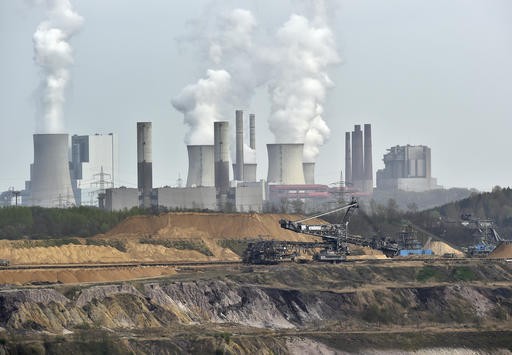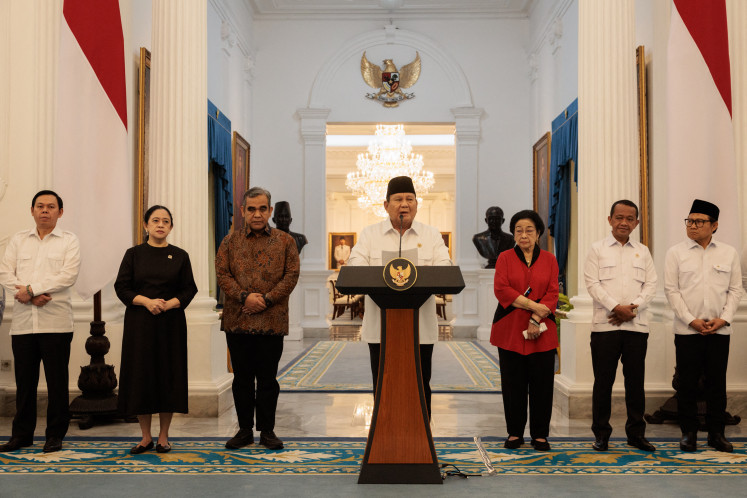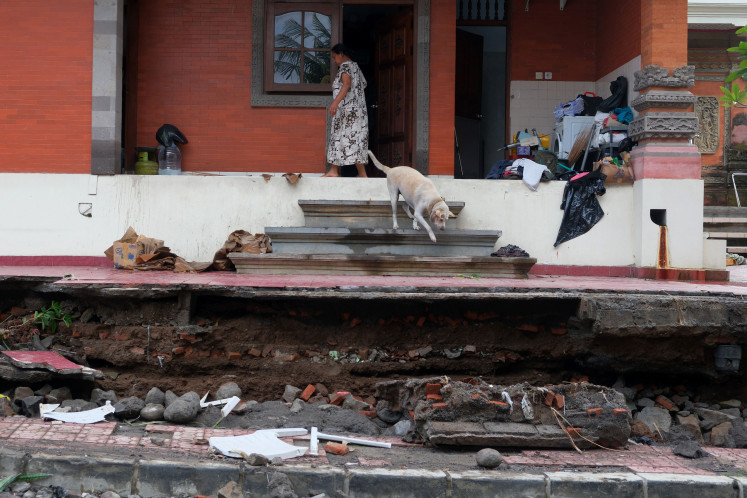Popular Reads
Top Results
Can't find what you're looking for?
View all search resultsPopular Reads
Top Results
Can't find what you're looking for?
View all search resultsNew coal technology won't solve climate woes
As stated by Kornelis Blok, professor of energy systems analysis, Technical University of Delft, Netherlands: “Clean coal technology comes too late to still make a significant contribution to climate change mitigation.
Change text size
Gift Premium Articles
to Anyone
A
ccording to the World Coal Association (WCA) “high efficiency, low emissions” coal technology will allow Indonesia to “continue to use its coal resources”, whilst also meeting its international commitments to reducing greenhouse gas emissions.
This is simply false: No new coal plants are compatible with the goal of keeping global temperature increases below 2 degrees Celsius.
The WCA recently held workshops in Indonesia to promote this technology, and the Indonesian government seems only too keen to hear the coal industry’s message. It is already planning to increase the number of coal-fired power plants in operation in Indonesia — adding 35 Gigawatts (GW) of new coal to the 26 GW already in existence.
But there are five good reasons why the coal industry’s plan won’t work.
First, greenhouse gas emissions need to be reduced far more than so-called “highly efficient coal” can manage. Coal power’s most efficient technologies can reduce carbon dioxide ( CO2 ) emissions per unit of electricity by around a third, at most.
But, by 2050, emissions from electricity production need to be reduced by over 90 percent — and not only in Indonesia.
Therefore, any new clean coal plant constructed in the coming decades will have to be dismantled if we are to avoid irreversible climate change, potentially leaving a legacy of stranded assets, as we are already seeing in other markets.
Second, the WCA has suggested that more efficient coal can help Indonesia achieve its current emission reduction target. But this does not mean avoiding dangerous climate change.
The government’s target of reducing emissions by 29 percent by 2030 (excluding forestry) was rated as “inadequate” by independent experts prior to the Paris climate change talks last year.
It allows Indonesian greenhouse gas emissions to quadruple before any cuts take place as the baseline on which the reductions are based is set so high.
As stated by Kornelis Blok, professor of energy systems analysis, Technical University of Delft, Netherlands: “Clean coal technology comes too late to still make a significant contribution to climate change mitigation.
“The accumulated carbon in the atmosphere leaves no room for further deployment of more efficient coal technology. CO2 emissions per unit of generated electricity are simply still too high.
“Energy strategies resulting in higher shares of coal power are in sharp contrast with climate change mitigation ambitions. Indonesia has everything to become a strong, sustainable economy.
“But it requires a drastic rethinking about the role of coal and the deployment of better alternatives i.e. renewables such as geothermal and solar.”
Third, carbon capture and storage (CCS) technology — a key part of the “clean coal” narrative — is too expensive and likely unviable in Indonesia. CCS involves capturing the CO2 from burning coal and moving it elsewhere.
In Indonesia, this would mean using non-existent transport to move the carbon dioxide to distant geological reservoirs — an expensive and probably unrealizable prospect. CCS is hence not part of the government plans.
Fourth, renewable technologies are already starting to outcompete coal on cost grounds. A tender for solar photovoltaics in the United Arab Emirates recently resulted in a bid of less than US$30/MWh, about one third of the generation cost of conventional plants in Indonesia.
The cost of more efficient coal is far higher than that of current coal technology, making them even less viable.
Fifth, renewable resources in Indonesia are gigantic: the geothermal energy potential may well be the largest in the world, and solar potential is huge.
Combined with wind, sustainable bioenergy and hydropower, the country could be fully supplied by cheaper and safer energy sources. Energy savings improve the potential even further.
Access to electricity is rightly high on the political agenda in Indonesia as a way of supporting economic and societal development. But the answer isn’t more, unabated coal.
Ecofys’ recent research shows that building new high-efficiency coal plants is simply incompatible with the 2° Celsius target agreed upon in Paris. Our research shows that there is simply no room in the carbon budget for any more coal plants, anywhere in the world, and in fact existing coal plants in rich countries need to be shut down by 2030, or make significant investments to reduce their emissions.
The country needs an energy strategy that truly incorporates climate constraints, shifting away from fossil energy. The Indonesian government is already gradually moving in the right direction on renewables — it intends to source quarter of its energy from renewables by 2025, which means adding about 46 GW of renewables in the next decade.
It has just announced a feed-in tariff for solar, which will start to drive investment toward new, cheap and reliable solar generation.
Clearly shifting away from fossil fuels goes along with significant economic and societal consequences — both positive and potentially negative.
But countries and actors are successfully moving onto a low-carbon pathway.
The global transition is happening now, and Indonesia needs to ride this wave by investing in renewables and energy efficiency, instead of falling for the WCA efforts to keep a dangerous and declining industry afloat for a few more years.
***
The writer is a principal consultant, Ecofys Netherlands B.V. The views expressed are his own.
---------------
We are looking for information, opinions, and in-depth analysis from experts or scholars in a variety of fields. We choose articles based on facts or opinions about general news, as well as quality analysis and commentary about Indonesia or international events. Send your piece to community@jakpost.com.










